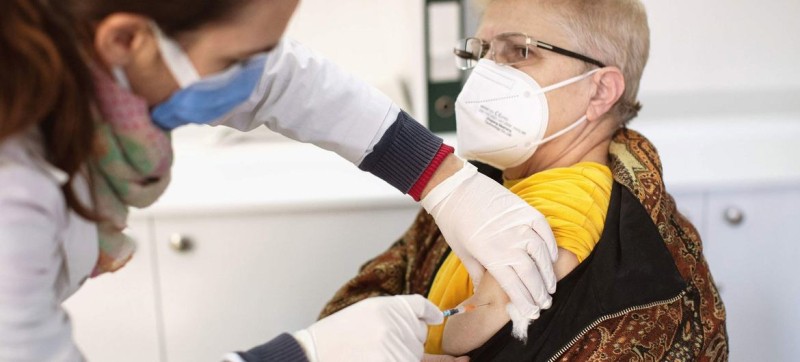COVID in Europe: China’s surge not a cause for concern ‘at this time’ says WHO, as XBB.1.5 virus spreads
Contents
© WHO/Arete/Florion Goga Pensioner Xhane Grodani who lives with her husband in Tirana, Albania, receives her third COVID-19 vaccination at a clinic in the capital.
Dr. Hans Kluge, head of the World Health Organization for Europe, explained that this is because the two variants circulating in China are already present in European countries, according to data provided by the Chinese authorities.
Tweet URL
“We share the current view of the European Centre for Disease Prevention and Control (ECDC) that the ongoing surge in China is not anticipated to significantly impact the COVID-19 epidemiological situation in the WHO European Region at this time.”
Restrictions ‘not unreasonable’
The WHO senior official acknowledged that China had shared virus sequencing information, but he appealed for more “detailed and regular information”, especially concerning local epidemiology and variants “to better assess the evolving situation”.
Dr Kluge also said that travel restrictions by European countries on visitors from China were “not unreasonable…while we are waiting for more detailed information that is shared through publicly available databases”.
But he said it was important for the precautionary travel measures being introduced by European countries “to be rooted in science, to be proportionate and non-discriminatory”.
Visas halted
The message comes as Chinese embassies suspended issuing new visas for South Koreans and Japanese visitors on Tuesday. The announcement covered tourist, business and some other visa categories.
The move appears to be in response to COVID-19 testing requirements recently imposed by those countries on travellers from China.
A notice posted in Seoul reportedly said the ban would continue until South Korea lifts its “discriminatory entry measures” against China.
At least ten countries in Europe, North America and Asia have announced new virus testing requirements for travellers from China, with officials expressing concern about a lack of adequate information about rapidly spreading virus outbreaks in China.

UNICEF/Bruno Amsellem/Divergence A three-year-old child at home in Lyon, France, during a COVID-19 lockdown.
Warning against complacency
In two further messages to the WHO European Region, Dr Kluge warned against countries greatly reducing their surveillance capacity for COVID-19.
In the first five weeks of 2022, variant information on 1.2 million cases was submitted as part of weekly surveillance data to the WHO and the ECDC.
However, this declined to about 90,000 cases in the last 5 weeks of the year.
Dr Kluge stressed that countries must build upon the lessons learned over the last three years and be able to anticipate, detect and respond in time to SARS-CoV-2, and any emerging health threat.
XBB.1.5 spreading
He commended European countries, including Denmark, France, Germany and the United Kingdom, that have maintained strong genomic surveillance and pointed out that their recent data has started to indicate the growing presence of the new XBB.1.5 recombinant virus, derived from the Omicron variant, that has already been spreading rapidly across the United States.
The new strain is being “picked up in small, but growing numbers, and we are working to assess its potential impact,” he said. “With many countries grappling with overstretched health systems, shortages in essential medicines and an exhausted health workforce – we cannot afford more pressures on our health systems.”
Finally, Dr Kluge urged countries across Europe and Central Asia to step up efforts to put effective strategies in place to combat the spread of COVID-19 and avoid being complacent.




Comments are closed, but trackbacks and pingbacks are open.